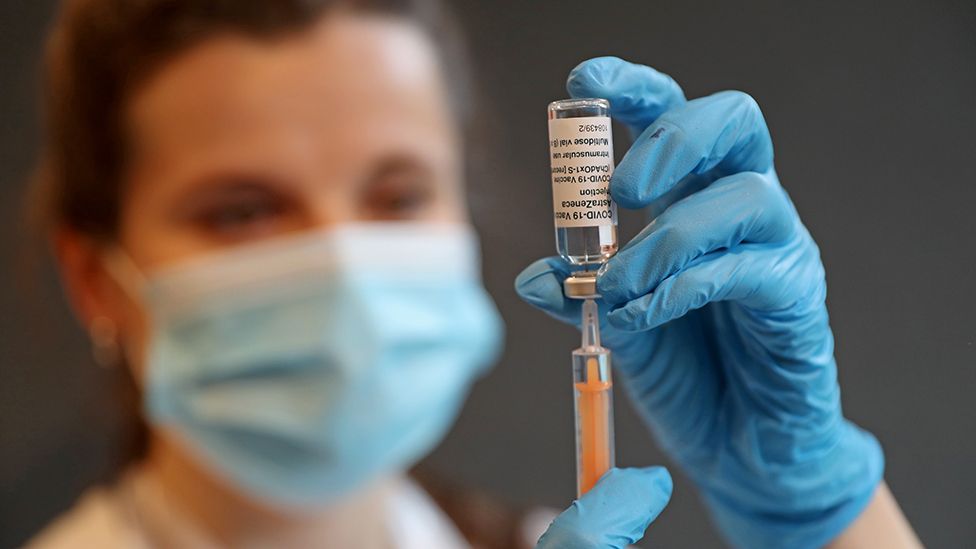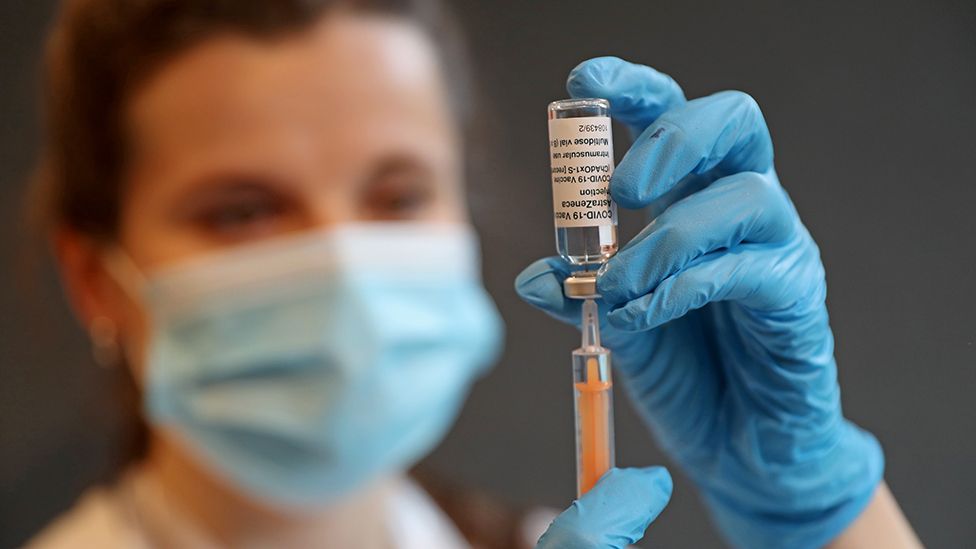
LONDON, April 19 (NNN-AGENCIES) — Australia and the Philippines limited use of AstraZeneca’s COVID-19 vaccine on Thursday, while the African Union dropped plans to buy the shot amid global shortages, dealing further blows to the company’s hopes to deliver a vaccine for the world.
The vaccine – developed with Oxford University and considered a frontrunner in the global vaccine race – has been plagued by safety concerns and supply problems since Phase III trial results were published in December, with Indonesia the latest country forced to seek doses from other drugmakers.
The Philippines suspended the use of AstraZeneca shots for people under age 60 after Europe’s regulator said on Wednesday it found rare cases of blood clots among some adult recipients, although it still believes that the vaccine’s benefits outweighed its risks.
Australia recommended people under 50 should get Pfizer’s COVID-19 vaccine in preference to AstraZeneca’s, a policy shift it warned would hold up its inoculation campaign.
AstraZeneca’s shot is sold at cost, for a few dollars a dose. It is by far the cheapest and most high-volume launched so far, and has none of the extreme refrigeration requirements of some other COVID-19 vaccines, making it likely to be the mainstay of many inoculation programmes in the developing world.
But more than a dozen countries have at one time suspended or partially suspended use of the shot, first on concerns about efficacy in older people, and now on worries about rare dangerous side effects in younger people.
That, coupled with production setbacks, will delay the rollout of vaccines across the globe as governments scramble to find alternatives to tame the pandemic that has killed more than 3 million.
Italy on Wednesday joined France, the Netherlands, Germany and others in recommending a minimum age for recipients of AstraZeneca’s shot, and Britain said people under 30 should get an alternative. South Korea also suspended use of the vaccine in people under 60 this week, while approving Johnson & Johnson’s one-dose vaccine.
AstraZeneca has said it is working with British and European regulators to list possible brain blood clots as “an extremely rare potential side-effect”.
South Africa also paused AstraZeneca vaccinations last month after a small trial showed the shot offered minimal protection against mild-to-moderate illness caused by the dominant local coronavirus variant.
AstraZeneca is grappling with production issues that have led to shortfalls of its vaccine in several countries.
Indonesian Health Minister Budi Gunadi Sadikin said on Thursday the country was in talks with China on getting as many as 100 million COVID-19 vaccine doses to plug a gap in deliveries caused by delays in the arrival of AstraZeneca shots.
India has put a temporary hold on all major exports of AstraZeneca’s shot made by the Serum Institute of India (SII), the world’s biggest vaccine-maker, as domestic infections rise.
That has affected supplies to the GAVI/WHO-backed global COVAX vaccine-sharing facility through which 64 poorer countries are supposed to get doses from SII, the programme’s procurement and distributing partner UNICEF said last month.
GAVI and the World Health Organisation said in a statement on Thursday that the facility had delivered nearly 38.4 million doses to more than 100 countries and economies across six continents, and expects to deliver doses to all participating economies that requested vaccines in the first half of the year.
AstraZeneca Chief Executive Pascal Soriot was quoted in the statement as saying more than 37 million doses of the company’s vaccine had been delivered through COVAX.
“We continue to work 24/7 to deliver on our unwavering commitment to broad, equitable and affordable access,” he said.
The African Union is exploring vaccine options with Johnson & Johnson, the head of the Africa Centres for Disease Control and Prevention said. It dropped plans to buy AstraZeneca’s shot from SII to avoid duplicating efforts by COVAX, which will continue to supply the vaccine to Africa.
Britain is slowing its vaccine rollout due to delays in a shipment of AstraZeneca shots from India and is at loggerheads with the EU over exports of the vaccine. Australia has also blamed delays in its immunisation campaign on supply issues in Europe.
AstraZeneca has cited reduced yields at a European factory for the supply shortfall to the European Union. — NNN-AGENCIES





